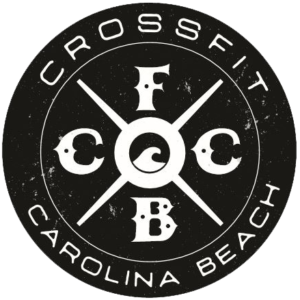Do you ever have days when you feel like all you could do is sleep no matter how much coffee you drink?
Or maybe you’ve been on a new strength program for the past 8 weeks and feel weaker than when you started?
Maybe you find yourself walking around the gym in a daze not wanting to get started?
If you said “Yes” to any of these you may have experienced a deficiency or imbalance of your neurotransmitters. Neurotransmitter are chemical messengers that get released in our body. They allow our cells to communicate and work together. There are 4 primary neurotransmitters: Dopamine, Acetylcholine, Serotonin, and GABA. They are both excitatory (speed our cells up) and inhibitory (slow are cells down).
All the neurotransmitters are constantly in fluxuation and balance with one another. This can have a huge effect on our mood, energy, and ability to focus. Some activities like lifting a heavy weight or taking a challenging test use up the neurotransmitters we have on hand.
Strength coach Charles Poliquin is a huge proponent of specific program design built around the athlete. Knowing which of the neurotransmitter types you are dominant in can help you adjust loading parameters, frequency and intensity of training, and plan rest days. Even having a basic understanding of which neurotransmitter type you are dominant in will give you a framework for decision making around your training goals.
Now lets learn a little about each neurotransmitter type.
Dopamine
Dopamine is an excitatory neurotransmitter making it a huge factor behind your motivation towards training and activity levels. Individuals who are dopamine dominant tend to be the ones who are always fired up to exercise. They handle high volume and intensity well but tend to adapt quickly to a stimulus which can cause them to overtrain quickly if their workouts are not constantly varied.
Dopamine synthesis can be promoted by eating foods such as almonds, peanuts, soybeans, avocados, bananas, watermelon, yogurt, beef, tuna, chicken, chocolate, eggs, coffee, and green tea.
Fun project: Guacamole anyone? Next grill session, fresh guac as a flavorful topping for proteins and watermelon chunks as a side or for dessert.
Acetylcholine
Acetylcholine is the neurotransmitter responsible for intercellular communication between the muscles in the nervous system. Acetylcholine levels can make a huge difference in our ability to recruit the maximal number of muscle fibers. On days where you might not “feel strong” could be because your cells are having a hard time communicating to coordinate on a lift.
Meats, dairy, poultry and fish contain high levels of choline, with the highest levels coming from liver. One 3-ounce serving of meat contains approximately 70 milligrams of choline. Chocolate, peanut butter, brussels sprouts and broccoli also contain significant levels of choline.
Fun project: meat casserole with brussels and broccoli. If you’ve got some homemade stock from your chicken, use the to flavor the casserole and to double down on Acetul-CoA production.
GABA
GABA is an inhibitory neurotransmitter and is responsible for shutting the body down for rest and recovery. You may be experiencing low GABA levels if you find your mind racing or have trouble sleeping at night.
GABA levels can be promoted through probiotic rich foods like yogurt that improve gut health. Foods that increase GABA levels include berries, bananas, and Pu-erh tea.
Fun project: Marissa and I ferment vegetables at home and use the spare pickle juice in our salads. Loaded in probiotics and fun to make, it’s a fun experiment for the home.
Serotonin
Serotonin is another inhibitory neurotransmitter and really a jack of all trades. It helps regulate mood and social behavior, appetite and digestion, sleep, memory, and sexual desire and function. Low levels of serotonin have been linked to fatigue and depression.
Foods like chicken, turkey, salmon, beef, nut butter, eggs, and green peas all contain high levels of Tryptophan a precursor to serotonin production. One other way to boost serotonin production? You guessed it…exercise!
Fun project: come to CrossFit Carolina Beach for a workout with your sweat heart, then home for some home made pad Thai with eggs, a few peas, and sub that classic peanut taste with almond butter. Carbs for the reload and shared experiences to boost the intimacy.
Want to talk more about training and recovery? Get in touch with us at www.crossitcb.com today!
Email jordan@crossfitcb.com for general questions.
